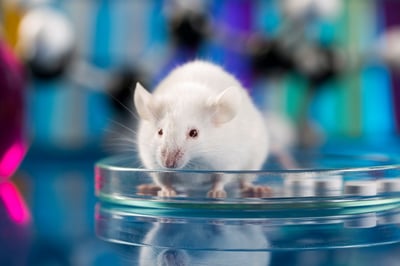 There are several mouse models used in PWS research, each missing some part of the DNA that is absent in PWS. Two of the most commonly used mouse models are the Snord116 mouse and the Magel2 mouse. Each of these has a deletion of the respective PWS-related gene.
There are several mouse models used in PWS research, each missing some part of the DNA that is absent in PWS. Two of the most commonly used mouse models are the Snord116 mouse and the Magel2 mouse. Each of these has a deletion of the respective PWS-related gene.
These "deletion" mouse models are some of the best available tools for research, and they have provided a tremendous amount of valuable information to help us better understand PWS. However, to date, these mouse models have not mimicked all of the symptoms of PWS. For example, one model may have intense food-seeking behavior and overeat, but not develop obesity. Another model may be obese and have poor muscle function but not display the drive for food.
Maintaining PWS Mice Under Different Temperatures
There are recent reports in the scientific literature that the temperature at which mice are kept for research impacts expression of some genes, as well as their metabolic rate. One of these impacted genes is Snord116. Dr. Valter Tucci’s group at the Italian Institute of Technology is studying the hypothesis that environmental temperature plays a crucial role in the pathophysiology of PWS symptoms, specifically sleep and obesity.
Dr. Tucci's team has shown that mice with the Snord116 deletion have sleep abnormalities and increased body temperature. In this project, they will maintain PWS mice under different temperature regimens and then analyze them for changes in sleep, body weight, food intake and energy expenditure. The results will provide information as to what temperature these mice should be kept in order to best replicate the biological symptoms, or phenotype, of PWS.
An Important Step Forward for Studying Therapies
This work is an important step in having the best model to study potentical therapies. The project is part of FPWR's efforts to "de-risk" the drug development process.
Dr. Tucci is also a member of the Preclinical Animal Network (PCAN), which was established during the summer of 2016. PCAN is a collaborative group of clinicians, industry experts and academic researchers working to better characterize PWS animal models, provide guidelines on which models are appropriate for which research questions, and make recommendations on developing new PWS animal models. The goal of the PCAN is to provide the tools and knowledge to accelerate drug development for PWS.








